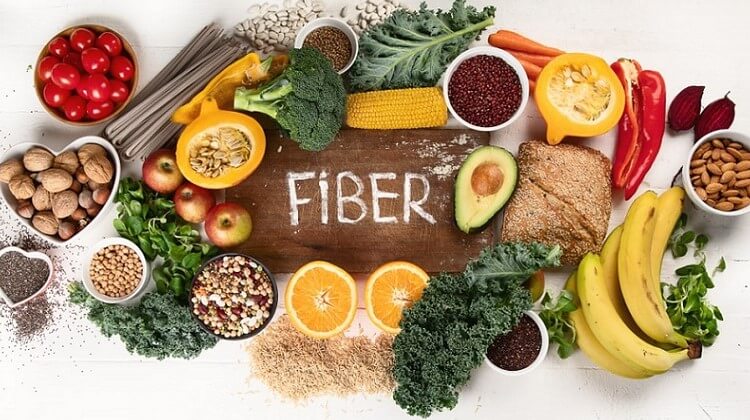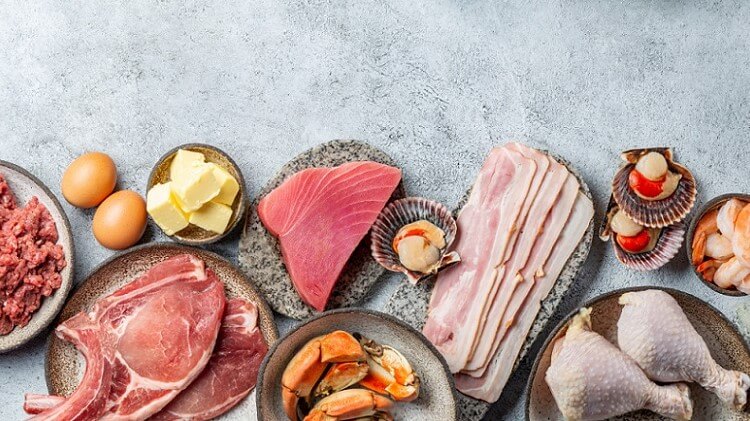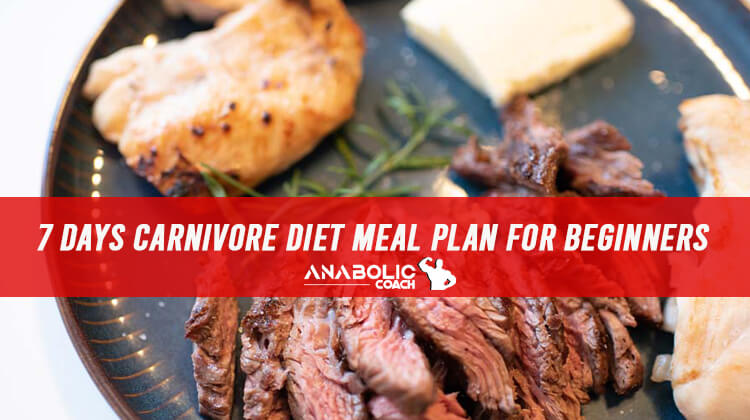The popularity of the carnivore diet is at an all time high, as more people look for natural solutions for an improved health and lifestyle.
But not everyone fully understands what a carnivore diet is all about or how to go about developing a meal plan.
We begin this post by letting you in on what a carnivore diet entails including the health benefits you could derive from primarily consuming meat, and the possible health risks you could be exposed to.
You will also get to know those foods you should include in your carnivore meal plan and those you should avoid.
We then round up the article with a 7 day carnivore diet meal plan for beginners while also hinting you on what you should expect in your first 4 weeks of eating only meat.
What Does the Carnivore Diet Entail?
A carnivore diet is a nutrition plan in which all your meals consist of only animal-based foods. And that means you do not consume any other type of food including high-lactose dairy products, bread, grains, vegetables, and fruits.
Staunch supporters of this diet surmise that people don’t need carbohydrates and plant-based foods in order to survive.
As a matter of fact, proponents of the carnivore diet claim that proteins and fats are the most essential macronutrients for one’s survival and not carbohydrates (carbs).
The thinking behind this diet originates from the widely held belief that the main food of ancient people was fish and meat rather than carbs.
In addition to this, a high-carb diet is widely believed to be responsible for the various chronic illnesses prevalent in many first-world countries, as high-carb diets are known to be a trigger for many gut problems and a high rate of inflammation on the body system.
In summary, a carnivore diet will see you strictly consume animal-based products and foods. You will need to completely avoid other types of foods and that includes carbs, fruits, high-lactose dairy products, and vegetables.

The Health Benefits of a Well Planned Carnivore Diet Meal Plan
Many people on a carnivore diet can attest to a number of health benefits that they have personally experienced over months of consistently maintaining a meat based diet.
Here are a few of the known carnivore diet health benefits:
#1. Carnivore Diet Helps with Weight Loss
As you rely on fats for your main source of energy instead of carbs, your body enters into ketosis where your metabolism utilizes stored as well as dietary fat as energy fuel.
#2. Carnivore Diet Boosts Stamina
As you burn body fat and convert this fat into energy fuel for your body’s use, your level of stamina is bound to rise and you would be able to spend more time weight training in your local gym or at home.
#3. Carnivore Diet Reduces Appetite
One way to lose weight is by limiting your overall food consumption without starving yourself in the process. A carnivore diet can help to reduce your appetite, as protein and fat are known to increase a person’s level of satiety.
In fact, it is possible for you to spend several hours in a day without having hunger pangs when you stick with a carnivore diet meal plan.
#4. Carnivore Diet Reduces Inflammation
Consuming a high-carb diet is known to increase your susceptibility to inflammation. Also, consuming refined or processed foods and vegetable oils can increase the level of inflammation in your body.
By maintaining a carnivore dietary plan, you will greatly reduce the inflammation in your body resulting in less pain and discomfort in your joints and other parts of your body.
It is worth noting that a protein-rich diet will increase your body’s collagen levels which would ultimately improve the health of your cartilages, tendons and bones.
#5. Carnivore Diet Boosts Hormonal Function
With an increased intake of healthy fats in your diet, you will be able to boost your body’s hormonal function, especially testosterone hormone which can then lead to increased energy levels, stamina, and lean muscle mass growth.
A carnivore diet is also known to improve a person’s mental health by providing better focus and mental clarity. This is mainly due to the neuroprotective capabilities of fats which the brain relies on for nutrients and energy in a carnivore diet instead of carbs.
The Possible Health Risk of a Carnivore Diet
There are a few health risks associated with a carnivore diet that you should be wary of and these are:
#1. Shortage of Dietary Fiber
People get most of their dietary fiber from plant-based foods and not grass-fed meat.
Dietary fiber is essential for improving good gut bacteria, and bowel movement while at the same time preventing constipation.
With a shortage of dietary fiber, you may be at a higher risk of constipation, gut bacteria imbalance, a compromised immune system, and even colon cancer.

#2. Digestion Issues
With a drop in good gut bacteria due to your carnivore diet, you may be at risk of having digestion problems including bloating, diarrhea, and irritable bowel syndrome (IBS).
#3. Possible Low Levels of Vitamin C Supply
Vitamin C is an essential micronutrient needed for building your immune system and protecting you from chronic illness.
Vitamin C is also needed to help you recover quickly from damaged muscle tissues incurred during your weight training sessions.
However, while on a carnivore diet, your vitamin C supply may be low, especially if you don’t consume foods like eggs and organ meat, as these foods are rich in vitamin C.
#4. Dangers Arising from Increased Saturated Fats and Sodium Intake
As you consume only fish and grass-fed meat, you will inadvertently increase your saturated fats and sodium consumption.
The dangers of these include inflammation, water retention, kidney disease, high blood pressure, and even stroke.
What Should You Eat and Avoid While on a Carnivore Diet?
While you decide to go on a carnivore diet today, it is important for you to know what foods to eat and those to avoid completely.
The table below highlights the foods you should consume while you are on a carnivore diet, as well as those foods you shouldn’t bother consuming.
| FOODS TO CONSUME | FOODS TO AVOID |
| Grass-fed meat including pork chops, bacon, flank steak, ribeye, T-bone steak, 80/20 ground meat, and so on. Grass-fed meat is your main source of calories. | Every fruit should be avoided and that includes apples, oranges, berries, and bananas. |
| Fatty fish such as catfish, mackerel, trout, sardine, and salmon. | Every vegetable should be avoided including tomatoes or even vegetable broths or vegetable-based condiments. |
| Eggs will provide you with a great balance in macronutrients (fats and protein) while also providing your body with essential vitamins and minerals. | High-lactose dairy should be avoided. This includes yogurt and creamy cheese. |
| Bone broth is an excellent source of protein and will provide your body with collagen for good skin and strong bones and joints. Bone broth will also promote good gut health. | Every form of sugar should be avoided whether the sugar is natural or refined. |
| Low-lactose dairy products like kefir, aged cheese, grass-fed butter, and milk are a great source of protein and fats. | All processed foods should be avoided including foods with MSG, nitrites, nitrates, and other forms of additives. |
| Animal-based fat like tallow and lard should be used as cooking oil rather than vegetable oil. | Avoid low-grade meat which are typically those that are not derived from grass-fed animals. |
| Condiments including seasonings and spices like herbs, pepper and salt can be included in your carnivore diet. | Avoid every type of grain, pasta, pastries or bread. |
| Avoid all forms of legumes, seeds, and nuts including cashew nuts and peanuts. |
7 Day Carnivore Diet Meal Plan for Beginners
Now that you know what a carnivore diet is all about including the foods to eat and avoid as well as the benefits and risks involved, you may be wondering how to go about setting up a meal plan.
This seven day carnivore diet meal plan for beginners can serve as a reference point for whatever meal plan you intend adopting in your lifelong carnivore diet journey.
But before you checkout this seven day carnivore diet meal plan, you should know that the dietary plan consists of four meals daily, namely; Breakfast, Lunch, Mid-Day Snack, and Dinner.
However, in executing your carnivore diet, you should always eat until you are no longer famished for the day.
| MEALS | DAY 1 | DAY 2 | DAY 3 | DAY 4 | DAY 5 | DAY 6 | DAY 7 |
| BREAKFAST | Eggs + T-boneSteak | Omelette + Feta Cheese | Bacon + Poached Eggs | Kefir + Poached Eggs | Feta Omelette + Turkey | Scrambled Eggs + Beef Livers | Scrambled Eggs + Bacon |
| LUNCH | Pork chops + Salmon | Chicken or Turkey Drumsticks + Cheddar Cheese | Hard-boiled Eggs + Salmon | Bacon + Shredded Chicken | Chicken Livers | Chicken Burgers | Grilled Turkey |
| MID-DAY SNACK | Low-lactose Dairy Cottage Cheese | Chomps | Tuna | Sardines | Steak Bites | Hard Boiled eggs | Sardines |
| DINNER | NY Strip Steak | T-bone steak or Ribeye steak | Roasted Turkey + Bone Broth | Roasted Salmon | Bison Burgers | Prime Ribs | Pork Chops |

A Word for the Wise
What most people won’t tell you is that changing your diet can be hard, especially from the onset.
So in order to make that seamless transition to a carnivore diet, you need to have a strong mindset to stay the course and not give up.
But apart from being mentally ready for the challenges that come with switching to a carnivore diet, you also need to get your bloodwork done just prior to starting the carnivore diet and once more after about 60 days into your diet.
The Importance of getting a blood test cannot be overemphasized, as you need to know if your body is adjusting well to the carnivore diet or not.
You should also expect to have a fluctuating appetite where at times you experience hunger pangs and other times you feel full. Do not be alarmed by this and just continue with your carnivore diet eating only when you feel hungry.
Finally, if you need more information on carnivore diet, you can reach out to an IFBB PRO for free consultation today.


